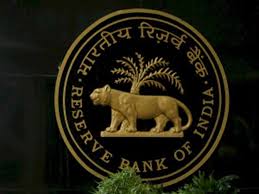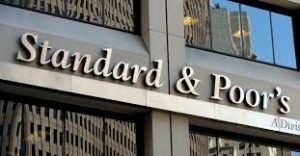 Indian private equity investor Siddharth Parekh and entrepreneur Sumeet Nindrajog are launching a $200 million India focused fund. The duo announced today that they have raised $50 million in commitments, marking the first close of their $200 million private equity fund, Paragon Partners Growth Fund I (PPGF-I). Established in August 2015, PPGF is an Alternative Investment Fund(AIF)-Category II Private Equity fund looking to invest in high growth mid-market private companies in India.
Indian private equity investor Siddharth Parekh and entrepreneur Sumeet Nindrajog are launching a $200 million India focused fund. The duo announced today that they have raised $50 million in commitments, marking the first close of their $200 million private equity fund, Paragon Partners Growth Fund I (PPGF-I). Established in August 2015, PPGF is an Alternative Investment Fund(AIF)-Category II Private Equity fund looking to invest in high growth mid-market private companies in India.
The fund will focus on five core sectors, including consumer discretionary, financial services, infrastructure services (capex light), industrials and healthcare services. The fund claims to have an advanced pipeline of investment opportunities across these sectors and plan to invest in 10-15 mid-market companies in India, with an average deal size of $10-20 million.
In line with this, Paragon Partners plans to pursue an active investment approach, contributing to the advancement of its portfolio companies in three core areas: business development, organizational development, and operational efficiency.
Paragon Partners’ Advisory Board will also work hand-in-hand with its investment and operations professionals to drive value in its portfolio companies. The board includes Deepak Parekh (Chairman, HDFC Ltd.), Harsh Mariwala (Chairman, Marico Ltd. & Founder Member), Sunil Mehta, (Chairman, SPM Capital Advisors Pvt Ltd) and Jeff Serota (ex Sr. Partner at Ares Private Equity) amongst others. Siddharth, Co-Founder, Paragon Partners, commenting on the first close, said,
We believe the next decade in India will see a strong resurgence of growth in key sectors such as manufacturing, financial services and infrastructure.
With its first close, PPGF-I has invested $10 million as growth capital in Capacite Infraprojects Limited, a Mumbai based firm which is engaged in the construction of buildings (including super high rise structures) and factories, for large real estate developers, corporates and institutions across the Mumbai, NCR and Bengaluru regions.
Established in August 2012, Capacite is promoted by Rahul Katyal, Rohit Katyal, and Subir Malhotra. It will look to grow and expand to more locations on a selective basis moving forward. Commenting on the investment, Rohit, Director at Capacite said,
Within a span of three years, Capacite has achieved significant scale with an expected top line of ~Rs 1,000 cr for the current financial year, backed by a gross order book of Rs 5,400 cr. We are delighted to partner with Paragon Partners, as Capacite embarks on its next wave of growth.
PPGF-I claims to have seen interest from onshore and offshore institutions, family offices and HNI’s. Domestic investors include India Infoline, Edelweiss Group and Infina Finance Private Limited (an associate of Kotak Mahindra Bank Limited). The fund also claims to have received a significant commitment from the Fairfax group based in Canada. With additional discussions in progress, the fund expects to close on further commitments in coming months.
The Indian startup ecosystem has seen an uprising in the past few years and there is now both internal and external interest in investing in early and mid-stage companies. In September 2015, Kalaari Capital had raised a $290 million India focused fund. In December 2015, Blume Ventures had raised $30 million for its Fund II to invest in 35-45 startups. In February 2016, early stage investor, Kae Capital too raised $30 million for its second fund, with an aim to allocate 10% of the fund to cater to non-tech start-ups.
Reports also suggest that Sequoia Capital had closed a $920 million India focussed fund in February 2016, though Sequoia is yet to confirm the same. Other marquee investors like SAIF Partners, Accel Partners, and Lightspeed India, have racked up fresh funds in the recent past.
Source:
 CDPQ, which deals primarily in public and para-public pension and insurance plans, also announced the establishment of its Indian office in New Delhi.
CDPQ, which deals primarily in public and para-public pension and insurance plans, also announced the establishment of its Indian office in New Delhi.




